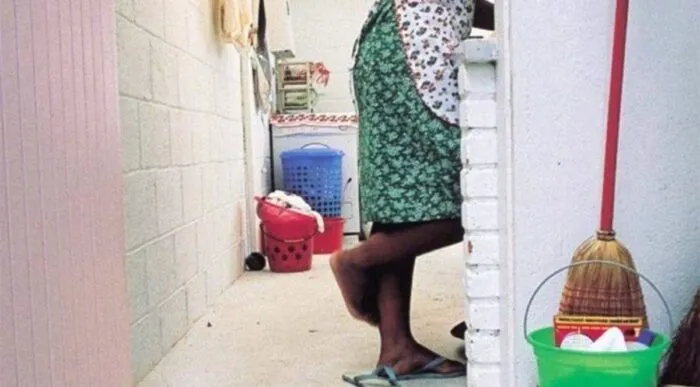After 72 years as a domestic worker for a family in Rio de Janeiro without any salary, a woman was rescued by Rio’s Labor Inspection Audit with the participation of the Labor Public Ministry (LPM) on March 15, 2022. According to Brazil’s Ministry of Labor and Employment (MTE, in Portuguese), that is the longest-running case of exploitation of a person in a condition analogous to slavery since the crime began to be monitored in 1995.
When the old lady was rescued, she was sleeping on an improvised couch in a room at the back of the house. Back then, her work was to take care of her employer, the woman who enslaved her during her whole life. In all, three generations of the family benefited from the unpaid work of the 84-year-old worker.
However, this case isn’t an exception. From January 2017 to August 2023 in Brazil, 101 domestic workers were rescued from conditions analogous to slavery. That’s what shows a survey by Brasil de Fato made via the Access Information Law (also known in Brazil as LAI) using MTE data.
The ministry explained that 2017 is the year that marks the beginning of recording data on the rescue of domestic workers under conditions analogous to slavery. MTE's Labor Inspection Secretariat is responsible for that.
According to the survey, in 2017, two domestic workers were rescued from living under such degrading conditions in Brazil. In the next three years, the pattern continued: 2018 (2), 2019 (5) and 2020 (3). Nevertheless, in 2021 (31), 2022 (34) and until August 2023 (24), there was exponential growth in the number of people rescued. The figures do not shock Luiza Batista, the general coordinator of the National Federation of Domestic Workers (Fenatrad, in Portuguese), because she believes “it is still underreported."

Number of domestic workers rescued in slavery-like conditions in Brazil since 2017. Data of August 2023.
“The figures aren’t accurate and real because the Constitution says the dwelling house is inviolable. But that’s relative. People with money have their houses respected, which does not happen in poor neighborhoods. When a case is denounced, unions cannot go to the workplace of the domestic worker. Even labor inspectors cannot go without having a warrant. Therefore, due to these difficulties, it's sure that the 101 workers rescued do not correspond to reality. There are probably more cases,” Batista explains.
In September this year, ten people were freed from conditions analogous to slavery after a joint operation that included the MTE, LPM, the State public defender’s office, the Federal Police and the Highway Federal Police.
These ten people aren’t part of Brasil de Fato’s survey. With this case, the total number of people rescued in 2023 reaches 34 and equates to the figures of 2022, becoming the years with the largest numbers of domestic workers rescued from situations similar to slavery.
Among the states where the cases happened, Bahia is at the top with 28 domestic workers rescued, followed by São Paulo (23), Minas Gerais (12), Rio de Janeiro (8) and Goiás (5).

Number of domestic workers rescued in slavery-like conditions in Brazil since 2017. Data of August 2023
Increase in cases
Luiza Batista attributes the increase in data to public awareness campaigns – which encourage denunciations of slave labor – and progress in the regularization of the profession.
“Regarding work conditions, it’s necessary tougher laws targeting employers who don’t comply with legislation, whose employees don’t work on the books and have no salary or overtime pay. We know that it is related to dwelling house inviolability. Did conditions improve? Yes, but they can get even better,” Batista said.
In 2023, Constitutional Amendment n.72, popularly known as “PEC das Domésticas” in Portuguese, celebrated a decade since its approval. The law was a turning point for domestic workers in Brazil, given it guaranteed their rights to regulated working hours, overtime pay, night shift pay and unemployment insurance.
Despite the law, Batista explains, “most denunciations are made by people other than domestic workers and anonymously.” It happens because “most of the people rescued are illiterate or semi-literate. They don’t know how to make a denunciation and have difficulties communicating with others. These women take a long time until realizing they face slave-like conditions.”
During these ten years of the constitutional amendment, informal jobs continued to be the main factor preventing the universalization of rights. According to data from the National Household Sample Survey (PNAD, in Portuguese), a survey by the Brazilian Institute of Geography and Statistics (IBGE), 76% of domestic workers do not have a formal job contract, that is, 3 out of 4 professionals carry out domestic work without access to social protection and other labor rights.
The Ministry of Labor and Employment said the data are not organized by sex. Therefore, it isn’t possible to know how many female or male domestic workers were rescued. However, PNAD says women make up the majority of the category, occupying 92% of domestic work vacancies in Brazil.
How to denounce?
If you know a domestic worker living under conditions analogous to slavery, call 100 to denounce it. There are no charges, and the service operates 24/7.




